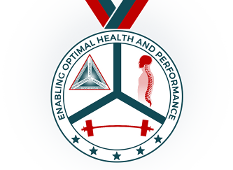Serotonin is a neurotransmitter found in the central nervous system that provides a sense of happiness and well being. When serotonin levels are not sufficient, a range of symptoms including (but not limited to) depression, anxiety, mood swings and apathy can result. The good news however, is that you can boost your serotonin levels with a proper diet that reaches the recommended dietary allowance in all markers.
Serotonin is produced from the amino acid tryptophan. Tryptophan is found abundantly in foods like lamb, turkey, and chicken. But simply consuming these foods is not enough, as the conversion to serotonin from tryptophan is catalyzed by vitamin B6, as well as zinc. Deficiency in any of these 4 nutrients can result in an overall decrease in serotonin levels, and an increase in symptoms. It looks like this:
tryptophan=======(B6 + Zinc)=========>>>>serotonin
Whole-food sources of vitamin B6 are found in many foods–most abundantly in tuna, avocado and salmon. Many people choose not to eat tuna because of high mercury content, but a 3oz piece of sockeye salmon (about the size of a check-book) can provide roughly 100% of B6 and 50% of vitamin D (another seasonal issue…) daily requirements for the average sized adult. Great sources of zinc are found in red meat, pumpkin seeds and cashews.
The above food source lists are by no means complete; and often when dietary changes are recommended to patients they respond by saying “but I don’t like that!”. Fortunately, there are many other foods that have suitable levels of the above mentioned nutrients that may be more pleasing to your palate–and you can check/track them here (for free!) at www.cronometer.com .
It is also worth noting that serotonin is synthesized and released by the gastro-intestinal tract, and B6 is converted to its active form there as well; all the more reason to eat a balanced diet and maintain a healthy digestive system. And of course, it benefits one to ensure sufficient levels in all dietary markers on a year round basis as well.
